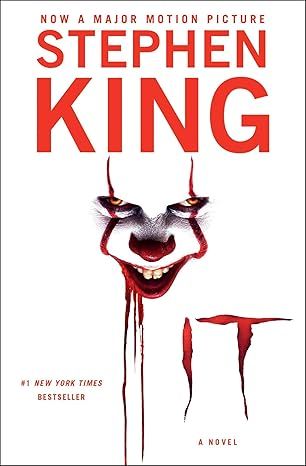It: A Novel
4.7
-
49,026 ratings
Stephen King's classic #1 New York Times bestseller and the basis for the massively successful films It: Chapter One and It: Chapter Two as well as inspiration for HBO Max’s upcoming Welcome to Derry—about seven adults who return to their hometown to confront a nightmare they had first stumbled upon as teenagers...an evil without a name: It.
Welcome to Derry, Maine. It’s a small city, a place as hauntingly familiar as your own hometown. Only in Derry the haunting is real.
They were seven teenagers when they first stumbled upon the horror. Now they are grown-up men and women who have gone out into the big world to gain success and happiness. But the promise they made twenty-eight years ago calls them reunite in the same place where, as teenagers, they battled an evil creature that preyed on the city’s children. Now, children are being murdered again and their repressed memories of that terrifying summer return as they prepare to once again battle the monster lurking in Derry’s sewers.
Readers of Stephen King know that Derry, Maine, is a place with a deep, dark hold on the author. It reappears in many of his books, including Bag of Bones, Hearts in Atlantis, and 11/22/63. But it all starts with It.
“Stephen King’s most mature work” (St. Petersburg Times), “It will overwhelm you…to be read in a well-lit room only” (Los Angeles Times).
Kindle
$12.99
Available instantly
Audiobook
$0.00
with membership trial
Hardcover
$27.16
Paperback
$13.80
Ships from
Amazon.com
Payment
Secure transaction
ISBN-10
1982127791
ISBN-13
978-1982127794
Print length
1184 pages
Language
English
Publisher
Scribner
Publication date
July 29, 2019
Dimensions
5.5 x 2 x 8.38 inches
Item weight
2.3 pounds
Popular Highlights in this book
Home is the place where when you go there, you have to finally face the thing in the dark.
Highlighted by 3,033 Kindle readers
I, Georgie, am Mr. Bob Gray, also known as Pennywise the Dancing Clown.
Highlighted by 2,940 Kindle readers
Their buckles made a jolly jingling as George Denbrough ran toward his strange death.
Highlighted by 2,757 Kindle readers
Product details
ASIN :
B018ER7K5I
File size :
4313 KB
Text-to-speech :
Enabled
Screen reader :
Supported
Enhanced typesetting :
Enabled
X-Ray :
Enabled
Word wise :
Enabled
Editorial reviews
“A landmark in American literature.” ― Chicago Sun-Times
“It will overwhelm you…Characters so real you feel you are reading about yourself…scenes to be read in a well-lit room only.” ― Los Angeles Times
“The indisputable King of Horror.” ― Time Magazine
“A mesmerizing odyssey of terror…King writes like one possessed, never cheats the reader, always gives full measure…He is brilliant…dark and sinister.” ― The Washington Post Book World
“Vintage King…a magnum opus of terror…just a glance at the first few pages, and you can’t put this novel aside.” ― St. Louis Post-Dispatch
“A great scary book…a nightmare roller-coaster…packed with more chills than a Frigidaire… ‘It’ turns out to be the monster-dread in us all, the one that refuses to go away.” ― San Francisco Chronicle
“Epic…gargantuan…breathlessly accelerating suspense… King is our great storyteller…I imagine him as a possessed figure rocking over a smoking word processor, hunting for a beat his sentences can dance to, pounding the shocks and scares like a rock organist laying down the power chords.” ― Los Angeles Herald-Examiner
“A ghoul’s delight…a good old-fashioned chill and shiver fest…as creepy as the finest of that genre.” ― Kansas City Star
“ King’s most ambitious project…reads as if written in a white heat!” ― San Jose Mercury News
“IT exhibits the potato chip syndrome – quite simply, you can’t read just one page and stop…It is in this novel that King comes out of the closet, a closet jammed and crowded with his own monsters.” ― Houston Chronicle
“Compulsively readable.” ― Fort Worth Star Telegram
“King’s most mature work.” ― St. Petersburg Times
“Chock-full of spooky stuff…a sprawling scare-fest that defines King’s recurring themes and adds a new set of ambitions to the mix.” ― The Philadelphia Inquirer
Read more
Sample
CHAPTER 1
After the Flood (1957)
1
The terror, which would not end for another twenty-eight years—if it ever did end—began, so far as I know or can tell, with a boat made from a sheet of newspaper floating down a gutter swollen with rain.
The boat bobbed, listed, righted itself again, dived bravely through treacherous whirlpools, and continued on its way down Witcham Street toward the traffic light which marked the intersection of Witcham and Jackson. The three vertical lenses on all sides of the traffic light were dark this afternoon in the fall of 1957, and the houses were all dark, too. There had been steady rain for a week now, and two days ago the winds had come as well. Most sections of Derry had lost their power then, and it was not back on yet.
A small boy in a yellow slicker and red galoshes ran cheerfully along beside the newspaper boat. The rain had not stopped, but it was finally slackening. It tapped on the yellow hood of the boy’s slicker, sounding to his ears like rain on a shed roof . . . a comfortable, almost cozy sound. The boy in the yellow slicker was George Denbrough. He was six. His brother, William, known to most of the kids at Derry Elementary School (and even to the teachers, who would never have used the nickname to his face) as Stuttering Bill, was at home, hacking out the last of a nasty case of influenza. In that autumn of 1957, eight months before the real horrors began and twenty-eight years before the final showdown, Stuttering Bill was ten years old.
Bill had made the boat beside which George now ran. He had made it sitting up in bed, his back propped against a pile of pillows, while their mother played Für Elise on the piano in the parlor and rain swept restlessly against his bedroom window.
About three-quarters of the way down the block as one headed toward the intersection and the dead traffic light, Witcham Street was blocked to motor traffic by smudgepots and four orange sawhorses. Stencilled across each of the horses was DERRY DEPT. OF PUBLIC WORKS. Beyond them, the rain had spilled out of gutters clogged with branches and rocks and big sticky piles of autumn leaves. The water had first pried fingerholds in the paving and then snatched whole greedy handfuls—all of this by the third day of the rains. By noon of the fourth day, big chunks of the street’s surface were boating through the intersection of Jackson and Witcham like miniature white-water rafts. By that time, many people in Derry had begun to make nervous jokes about arks. The Public Works Department had managed to keep Jackson Street open, but Witcham was impassable from the sawhorses all the way to the center of town.
But everyone agreed, the worst was over. The Kenduskeag Stream had crested just below its banks in the Barrens and bare inches below the concrete sides of the Canal which channelled it tightly as it passed through downtown. Right now a gang of men—Zack Denbrough, George’s and Bill’s father, among them—were removing the sandbags they had thrown up the day before with such panicky haste. Yesterday overflow and expensive flood damage had seemed almost inevitable. God knew it had happened before—the flooding in 1931 had been a disaster which had cost millions of dollars and almost two dozen lives. That was a long time ago, but there were still enough people around who remembered it to scare the rest. One of the flood victims had been found twenty-five miles east, in Bucksport. The fish had eaten this unfortunate gentleman’s eyes, three of his fingers, his penis, and most of his left foot. Clutched in what remained of his hands had been a Ford steering wheel.
Now, though, the river was receding, and when the new Bangor Hydro dam went in upstream, the river would cease to be a threat. Or so said Zack Denbrough, who worked for Bangor Hydroelectric. As for the rest—well, future floods could take care of themselves. The thing was to get through this one, to get the power back on, and then to forget it. In Derry such forgetting of tragedy and disaster was almost an art, as Bill Denbrough would come to discover in the course of time.
George paused just beyond the sawhorses at the edge of a deep ravine that had been cut through the tar surface of Witcham Street. This ravine ran on an almost exact diagonal. It ended on the far side of the street, roughly forty feet farther down the hill from where he now stood, on the right. He laughed aloud—the sound of solitary, childish glee a bright runner in that gray afternoon—as a vagary of the flowing water took his paper boat into a scale-model rapids which had been formed by the break in the tar. The urgent water had cut a channel which ran along the diagonal, and so his boat travelled from one side of Witcham Street to the other, the current carrying it so fast that George had to sprint to keep up with it. Water sprayed out from beneath his galoshes in muddy sheets. Their buckles made a jolly jingling as George Denbrough ran toward his strange death. And the feeling which filled him at that moment was clear and simple love for his brother Bill . . . love and a touch of regret that Bill couldn’t be here to see this and be a part of it. Of course he would try to describe it to Bill when he got home, but he knew he wouldn’t be able to make Bill see it, the way Bill would have been able to make him see it if their positions had been reversed. Bill was good at reading and writing, but even at his age George was wise enough to know that wasn’t the only reason why Bill got all A’s on his report cards, or why his teachers liked his compositions so well. Telling was only part of it. Bill was good at seeing.
The boat nearly whistled along the diagonal channel, just a page torn from the Classified section of the Derry News, but now George imagined it as a PT boat in a war movie, like the ones he sometimes saw down at the Derry Theater with Bill at Saturday matinees. A war picture with John Wayne fighting the Japs. The prow of the newspaper boat threw sprays of water to either side as it rushed along, and then it reached the gutter on the left side of Witcham Street. A fresh streamlet rushed over the break in the tar at this point, creating a fairly large whirlpool, and it seemed to him that the boat must be swamped and capsize. It leaned alarmingly, and then George cheered as it righted itself, turned, and went racing on down toward the intersection. George sprinted to catch up. Over his head, a grim gust of October wind rattled the trees, now almost completely unburdened of their freight of colored leaves by the storm, which had been this year a reaper of the most ruthless sort.
2
Sitting up in bed, his cheeks still flushed with heat (but his fever, like the Kenduskeag, finally receding), Bill had finished the boat—but when George reached for it, Bill held it out of reach. “N-Now get me the p-p-paraffin. ”
“What’s that? Where is it? ”
“It’s on the cellar shuh-shuh-shelf as you go d-downstairs, ” Bill said. “In a box that says Guh-Guh-hulf . . . Gulf. Bring that to me, and a knife, and a b-bowl. And a puh-pack of muh-muh-matches. ”
George had gone obediently to get these things. He could hear his mother playing the piano, not Für Elise now but something else he didn’t like so well—something that sounded dry and fussy; he could hear rain flicking steadily against the kitchen windows. These were comfortable sounds, but the thought of the cellar was not a bit comfortable. He did not like the cellar, and he did not like going down the cellar stairs, because he always imagined there was something down there in the dark. That was silly, of course, his father said so and his mother said so and, even more important, Bill said so, but still—
He did not even like opening the door to flick on the light because he always had the idea—this was so exquisitely stupid he didn’t dare tell anyone—that while he was feeling for the light switch, some horrible clawed paw would settle lightly over his wrist . . . and then jerk him down into the darkness that smelled of dirt and wet and dim rotted vegetables.
Stupid! There were no things with claws, all hairy and full of killing spite. Every now and then someone went crazy and killed a lot of people—sometimes Chet Huntley told about such things on the evening news—and of course there were Commies, but there was no weirdo monster living down in their cellar. Still, this idea lingered. In those interminable moments while he was groping for the switch with his right hand (his left arm curled around the doorjamb in a deathgrip), that cellar smell seemed to intensify until it filled the world. Smells of dirt and wet and long-gone vegetables would merge into one unmistakable ineluctable smell, the smell of the monster, the apotheosis of all monsters. It was the smell of something for which he had no name: the smell of It, crouched and lurking and ready to spring. A creature which would eat anything but which was especially hungry for boymeat.
He had opened the door that morning and had groped interminably for the switch, holding the jamb in his usual deathgrip, his eyes squinched shut, the tip of his tongue poked from the corner of his mouth like an agonized rootlet searching for water in a place of drought. Funny? Sure! You betcha! Lookit you, Georgie! Georgie’s scared of the dark! What a baby!
The sound of the piano came from what his father called the living room and what his mother called the parlor. It sounded like music from another world, far away, the way talk and laughter on a summer-crowded beach must sound to an exhausted swimmer who struggles with the undertow.
His fingers found the switch! Ah!
They snapped it—
—and nothing. No light.
Oh, cripes! The power!
George snatched his arm back as if from a basket filled with snakes. He stepped back from the open cellar door, his heart hurrying in his chest. The power was out, of course—he had forgotten the power was out. Jeezly-crow! What now? Go back and tell Bill he couldn’t get the box of paraffin because the power was out and he was afraid that something might get him as he stood on the cellar stairs, something that wasn’t a Commie or a mass murderer but a creature much worse than either? That it would simply slither part of its rotted self up between the stair risers and grab his ankle? That would go over big, wouldn’t it? Others might laugh at such a fancy, but Bill wouldn’t laugh. Bill would be mad. Bill would say, “Grow up, Georgie . . . do you want this boat or not? ”
As if this thought were his cue, Bill called from his bedroom: “Did you d-d-die out there, Juh-Georgie? ”
“No, I’m gettin it, Bill, ” George called back at once. He rubbed at his arms, trying to make the guilty gooseflesh disappear and be smooth skin again. “I just stopped to get a drink of water. ”
“Well, h-hurry up!”
So he walked down the four steps to the cellar shelf, his heart a warm, beating hammer in his throat, the hair on the nape of his neck standing at attention, his eyes hot, his hands cold, sure that at any moment the cellar door would swing shut on its own, closing off the white light falling through the kitchen windows, and then he would hear It, something worse than all the Commies and murderers in the world, worse than the Japs, worse than Attila the Hun, worse than the somethings in a hundred horror movies. It, growling deeply—he would hear the growl in those lunatic seconds before it pounced on him and unzipped his guts.
The cellar-smell was worse than ever today, because of the flood. Their house was high on Witcham Street, near the crest of the hill, and they had escaped the worst of it, but there was still standing water down there that had seeped in through the old rock foundations. The smell was low and unpleasant, making you want to take only the shallowest breaths.
George sifted through the junk on the shelf as fast as he could—old cans of Kiwi shoepolish and shoepolish rags, a broken kerosene lamp, two mostly empty bottles of Windex, an old flat can of Turtle wax. For some reason this can struck him, and he spent nearly thirty seconds looking at the turtle on the lid with a kind of hypnotic wonder. Then he tossed it back . . . and here it was at last, a square box with the word GULF on it.
George snatched it and ran up the stairs as fast as he could, suddenly aware that his shirttail was out and suddenly sure that his shirttail would be his undoing: the thing in the cellar would allow him to get almost all the way out, and then it would grab the tail of his shirt and snatch him back and—
He reached the kitchen and swept the door shut behind him. It banged gustily. He leaned back against it with his eyes closed, sweat popped out on his arms and forehead, the box of paraffin gripped tightly in one hand.
The piano had come to a stop, and his mom’s voice floated to him: “Georgie, can’t you slam that door a little harder next time? Maybe you could break some of the plates in the Welsh dresser, if you really tried. ”
“Sorry, Mom, ” he called back.
“Georgie, you waste, ” Bill said from his bedroom. He pitched his voice low so their mother would not hear.
George snickered a little. His fear was already gone; it had slipped away from him as easily as a nightmare slips away from a man who awakes, cold-skinned and gasping, from its grip; who feels his body and stares at his surroundings to make sure that none of it ever happened and who then begins at once to forget it. Half is gone by the time his feet hit the floor; three-quarters of it by the time he emerges from the shower and begins to towel off; all of it by the time he finishes his breakfast. All gone . . . until the next time, when, in the grip of the nightmare, all fears will be remembered.
That turtle, George thought, going to the counter drawer where the matches were kept. Where did I see a turtle like that before?
But no answer came, and he dismissed the question.
He got a pack of matches from the drawer, a knife from the rack (holding the sharp edge studiously away from his body, as his dad had taught him), and a small bowl from the Welsh dresser in the dining room. Then he went back into Bill’s room.
“W-What an a-hole you are, Juh-Georgie, ” Bill said, amiably enough, and pushed back some of the sick-stuff on his nighttable: an empty glass, a pitcher of water, Kleenex, books, a bottle of Vicks VapoRub—the smell of which Bill would associate all his life with thick, phlegmy chests and snotty noses. The old Philco radio was there, too, playing not Chopin or Bach but a Little Richard tune . . . very softly, however, so softly that Little Richard was robbed of all his raw and elemental power. Their mother, who had studied classical piano at Juilliard, hated rock and roll. She did not merely dislike it; she abominated it.
“I’m no a-hole, ” George said, sitting on the edge of Bill’s bed and putting the things he had gathered on the nighttable.
“Yes you are, ” Bill said. “Nothing but a great big brown a-hole, that’s you. ”
George tried to imagine a kid who was nothing but a great big a-hole on legs and began to giggle.
“Your a-hole is bigger than Augusta, ” Bill said, beginning to giggle, too.
“Your a-hole is bigger than the whole state, George replied. This broke both boys up for nearly two minutes.
There followed a whispered conversation of the sort which means very little to anyone save small boys: accusations of who was the biggest a-hole, who had the biggest a-hole, which a-hole was the brownest, and so on. Finally Bill said one of the forbidden words—he accused George of being a big brown shitty a-hole—and they both got laughing hard. Bill’s laughter turned into a coughing fit. As it finally began to taper off (by then Bill’s face had gone a plummy shade which George regarded with some alarm), the piano stopped again. They both looked in the direction of the parlor, listening for the piano-bench to scrape back, listening for their mother’s impatient footsteps. Bill buried his mouth in the crook of his elbow, stifling the last of the coughs, pointing at the pitcher at the same time. George poured him a glass of water, which he drank off.
The piano began once more-Für Elise again. Stuttering Bill never forgot that piece, and even many years later it never failed to bring gooseflesh to his arms and back; his heart would drop and he would remember: My mother was playing that the day Georgie died.
“You gonna cough anymore, Bill? ”
“No. ”
Bill pulled a Kleenex from the box, made a rumbling sound in his chest, spat phlegm into the tissue, screwed it up, and tossed it into the wastebasket by his bed, which was filled with similar twists of tissue. Then he opened the box of paraffin and dropped a waxy cube of the stuff into his palm. George watched him closely, but without speaking or questioning. Bill didn’t like George talking to him while he did stuff, but George had learned that if he just kept his mouth shut, Bill would usually explain what he was doing.
Bill used the knife to cut off a small piece of the paraffin cube. He put the piece in the bowl, then struck a match and put it on top of the paraffin. The two boys watched the small yellow flame as the dying wind drove rain against the window in occasional spatters.
“Got to waterproof the boat or it’ll just get wet and sink, ” Bill said. When he was with George, his stutter was light—sometimes he didn’t stutter at all. In school, however, it could become so bad that talking became impossible for him. Communication would cease and Bill’s schoolmates would look somewhere else while Bill clutched the sides of his desk, his face growing almost as red as his hair, his eyes squeezed into slits as he tried to winch some word out of his stubborn throat. Sometimes—most times—the word would come. Other times it simply refused. He had been hit by a car when he was three and knocked into the side of a building; he had remained unconscious for seven hours. Mom said it was that accident which had caused the stutter. George sometimes got the feeling that his dad—and Bill himself—was not so sure.
The piece of paraffin in the bowl was almost entirely melted. The match-flame guttered lower, growing blue as it hugged the cardboard stick, and then it went out. Bill dipped his finger into the liquid, jerked it out with a faint hiss. He smiled apologetically at George. “Hot, ” he said. After a few seconds he dipped his finger in again and began to smear the wax along the sides of the boat, where it quickly dried to a milky haze.
“Can I do some? ” George asked.
“Okay. Just don’t get any on the blankets or Mom’ll kill you. ”
George dipped his finger into the paraffin, which was now very warm but no longer hot, and began to spread it along the other side of the boat.
“Don’t put on so much, you a-hole!” Bill said. “You want to sink it on its m-maiden cruise? ”
“I’m sorry. ”
“That’s all right. Just g-go easy. ”
George finished the other side, then held the boat in his hands. It felt a little heavier, but not much. “Too cool, ” he said. “I’m gonna go out and sail it. ”
“Yeah, you do that, ” Bill said. He suddenly looked tired—tired and still not very well.
“I wish you could come, ” George said. He really did. Bill sometimes got bossy after awhile, but he always had the coolest ideas and he hardly ever hit. “It’s your boat, really. ”
“She, Bill said. ”You call boats sh-she. ”
“She, then. ”
“I wish I could come, too, ” Bill said glumly.
“Well . . . ” George shifted from one foot to the other, the boat in his hands.
“You put on your rain-stuff, ” Bill said, “or you’ll wind up with the fluh-hu like me. Probably catch it anyway, from my juh-germs. ”
“Thanks, Bill. It’s a neat boat. ” And he did something he hadn’t done for a long time, something Bill never forgot: he leaned over and kissed his brother’s cheek.
“You’ll catch it for sure now, you a-hole, ” Bill said, but he seemed cheered up all the same. He smiled at George. “Put all this stuff back, too. Or Mom’ll have a b-bird. ”
“Sure. ” He gathered up the waterproofing equipment and crossed the room, the boat perched precariously on top of the paraffin box, which was sitting askew in the little bowl.
“Juh-Juh-Georgie? ”
George turned back to look at his brother.
“Be c-careful. ”
“Sure. ” His brow creased a little. That was something your Mom said, not your big brother. It was as strange as him giving Bill a kiss. “Sure I will. ”
He went out. Bill never saw him again.
Read more
About the authors
Stephen King
Stephen King is the author of more than fifty books, all of them worldwide bestsellers. His first crime thriller featuring Bill Hodges, MR MERCEDES, won the Edgar Award for best novel and was shortlisted for the CWA Gold Dagger Award. Both MR MERCEDES and END OF WATCH received the Goodreads Choice Award for the Best Mystery and Thriller of 2014 and 2016 respectively.
King co-wrote the bestselling novel Sleeping Beauties with his son Owen King, and many of King's books have been turned into celebrated films and television series including The Shawshank Redemption, Gerald's Game and It.
King was the recipient of America's prestigious 2014 National Medal of Arts and the 2003 National Book Foundation Medal for distinguished contribution to American Letters. In 2007 he also won the Grand Master Award from the Mystery Writers of America. He lives with his wife Tabitha King in Maine.
Read more
Reviews
Customer reviews
4.7 out of 5
49,026 global ratings
Eriq
5
Character development
Reviewed in the United States on August 26, 2024
Verified Purchase
Hands down some of the best character development of any book. The story really moves forward using this story element. I’ve read long books before think the talisman. That was kind of a looong read, really wordy. But this is different and totally worth the Extra pages.
angel martin
5
it's intimidating, but well worth the read
Reviewed in the United States on June 9, 2021
Verified Purchase
This is one of the most special books I own; it was one of the last books my mom bought me before she passed, and she was so proud of herself for finally finding a copy. I usually end up rereading this book when I don’t know what else to read or need to read a comfort book, and at this point, it’s barely kept together. Considering my fear of clowns, I’m really not sure how this ended up as a comfort read, but I end up reading it at least once a year at this point. Each time I read it, I notice a detail I either forgot or didn’t catch the last time I read it.
It is tied with The Green Mile for my favorite King book (at least for now.) There were very few parts that failed to hold my attention from start to end, excluding those scenes. This is one of the books that genuinely freak me out at times, which doesn’t happen very often. I did get a bit frustrated with the length, especially considering I didn’t have much time to read it with schoolwork, but it’s definitely worth the time spent reading.
I have mixed feelings about the characters, but I will say the character development is great – for the most part. I didn’t particularly like Beverly as a child, even less so after reading that scene, but I loved her as an adult. However, I preferred Bill as a child and despised him as an adult. Either way, he was my least favorite Loser. I do wish we saw more of Stan, as he’s always been my favorite King character.
The plot itself was very entertaining and creepy, though some things felt completely unnecessary, particularly the sewer scene and the sexual scene between Henry and Patrick. Though it was uncomfortable to read, the violence Patrick showed did give the story more depth in my opinion; it showed how cruel he was, which I thought was a big part of his character.
There are some extremely dark and triggering themes in this book, including racism, homophobia, and rape, so if you plan on reading it, take that into consideration. If those things don’t bother you too bad, I do highly recommend the book; it has been and always will be my favorite horror/King novel. It can be a bit intimidating, but it’s so worth the effort of reading it.
I had to buy this copy because my first copy is missing pages and barely held together after four years of reading it.
Read more
7 people found this helpful
Kindle Customer
5
Even better the second time...a quarter of a century later.
Reviewed in the United States on November 15, 2016
Verified Purchase
When I was on a school field trip in the seventh grade, I took Stephen King's "IT" with me to read. The trip was going to be two days in Virginia, and was an example of staying overnight on a school trip. It should have been an adventure. The trip was frankly a waste, but the book was sublime.
I'd gotten into reading Stephen King two years before by way of a trip over the previous summer to my uncle's house. He had a collection of Stephen King novels and I'd started reading them with Pet Sematary, which had been adapted to the big screen two years before. In the intervening time, I'd devoured Salem's Lot, Carrie, Firestarter, and Misery, and The Shining. I found a copy of the 1990 TV movie adaptation and watched it. I recognized just how much I figured it had to have been toned down, but it was a decent primer (or so I thought). I felt warmed up and ready for the brick-like tome I'd acquired. I was wrong.
Reading the book was like a marathon, and I was prepared for a sprint. I easily identified with the younger versions of the characters, but had trouble with identifying with their adult incarnations. I appreciated the story and the implications of both eras, but entirely missed out on how well crafted the story was. In the end it took three weeks, but I completed the book, considered myself proud for conquering the nearly 1200 page tome, put it on the shelf, and...proceeded to put it out of my mind for nearly twenty five years. Almost, and entirely unintentionally, like the characters in the book...
Twenty five years later, I was on a kick of re-reading books I'd read as a kid, and then I approached Stephen King again. In the interim I'd devoured his books and probably thousands of other books by many dozens of different writers of differing skill levels, and when I thought "I should re-read some Stephen King" I thought about it, and it came down to either reading "IT" or "The Stand" and to be honest I felt "IT" was the better book. I remember it being a mountain for an adolescent. I wondered how I'd do this time.
It was SO MUCH better than I ever thought it would be!
I felt ACHINGLY nostalgic in the sections with the characters as kids. Whereas as a kid I identified with those elements as mapping directly onto my friends and setting, I did it unconsciously. Now I was (at times painfully) aware of it. I longed for the good times and friends of my youth. I appreciated how well King encapsulated the distance between childhood and adulthood and all the roads we travel in between. I reveled in how little we remember accurately about the past and how mutable it can be. I realized that IT was in fact two predators...both the eponymous monster who will kill and devour you, and the predator that robs us of our memories and the clarity we remember having as a kid.
The prose is wonderful. King doesn't use mere words to tell stories, he uses meanings themselves, woven seemingly seamlessly into shades of context and pigments of innuendo and occasionally bright, obvious splashes of unobfuscated emotion that jar you because...hey...in real life that's how it works. And in getting that right, King manages to make the impossible elements like the supernatural nature of IT and the relationship IT has with the town of Derry and the inhabitants there...normal. This could have happened. It could be happening. And it's that esoteric dread that King wields masterfully. The implications. The possibilities. Even in the fact that both eras are now, as of 2016, dated (the earlier phase was in the 50's, and the later phase was in the 80's...eerily we would be neck deep in the middle of the next cycle were it coming) was delightful. It was an added layer of nostalgia woven over the rest of the tapestry.
If you haven't read this book, read it now. Enjoy it. If you have read it, by all means read it again. It will thrill and delight and horrify and frighten you all over again.
Read more
1 people found this helpful
Karen S. Williams
5
Love Stephen King's books!
Reviewed in the United States on September 22, 2024
Verified Purchase
Watched the movie, I haven't read book yet, it just arrived. Item arrived in perfect condition just as described.
Autumn Bridges
5
A modern classic that will linger in your mind
Reviewed in the United States on February 7, 2020
Verified Purchase
5 / 5 stars
This is a tough review to write, because an 1100+ page doorstopper is a lot to take in and process. This book has become one of my all-time favorites (despite that scene), and I feel like I left a piece of my heart in the magically messed up town of Derry.
I went into this almost completely blind - I hadn’t seen either the television series or the recent movies, but I knew the plot had something to do with a clown terrorizing children in the sewers and red balloons. I expected more horror, but instead I got a love letter to childhood, friendship, and summer, with undertones of loss, growing up, and growing apart.
“The terror, which would not end for another twenty-eight years—if it ever did end—began, so far as I know or can tell, with a boat made from a sheet of newspaper floating down a gutter swollen with rain.”
In true King fashion, the first 200 pages or so of this were slow. I found myself wondering what I got myself into, because one of my reading goals for 2020 was to read this book, but man, was it slow. Around page 500, I was completely hooked, and then by page 1000 I was ready for it to be done. Thankfully, for the most part, this was a thoroughly enjoyable ride, and I actually find myself missing the world of Derry.
“It” has some of the best world building I’ve ever experienced. King’s tendency to over-describe and elaborate pulls through in this to make a town that seems so tangible, I had to remind myself that Derry isn’t actually a real place. From the barrens to the library, the sewers and the pharmacy, the standpipe and the park with the creepy Paul Bunyan statue, I had a detailed picture in my mind's eye. The wide cast of characters, including the town members like Mr. Keene, add to the realism of Derry.
“But maybe I was wrong, he thought. Maybe this isn’t home, nor ever was—maybe home is where I have to go tonight. Home is the place where when you go there, you have to finally face the thing in the dark.”
And the CHARACTERS. God, the characters. I love every member of the Losers Club, except for maybe Stanley. If I had to pick a favorite, I would say it’s a three way tie between Ben, Richie, and Bev. I loved watching them grow up and confront their past and fears while looking toward the future. I didn’t care for Stanley much, but that was because he was the most forgettable member of the club, and it felt like he was mainly there to bind the losers club together and serve as the realist.I thoroughly enjoyed both the past and the future, and still find myself thinking about the horrors the kids faced going against It in their younger days.
I loved the Derry interlude chapters, and they really added a new layer of depth to the world. It was interesting learning the history of Derry through snippets of the past, and I thoroughly enjoyed the side stories of the Black Spot and the Bradley Gang. Something about no one acknowledging the terrors as they’re happening makes everything It does so much more spine tingling.
It can be difficult to alternate between two perspectives, the past and the present, and from past experience when an author attempts it one point of view is written stronger than the other. That’s not the case here. In “It”, both the past and present were so poignant, and I wanted nothing more than happiness for both the kid and adult Losers. I think I liked the past chapters just a little bit more, because they had the unknown terror that kids face. It was also steeped with nostalgia and simpler times, and I found myself yearning for summers as a kid in my parents’ house.
“The first note his father left him in that spring of 1958 was scribbled on the back of an envelope and held down with a saltshaker. The air was spring-warm, wonderfully sweet, and his mother had opened all the windows.�”
The ending is one of the most bittersweet endings I’ve read in a book, and it made me cry like a baby. It was a cathartic ending, and I felt sadness, relief, and wonder. It didn’t feel fair, but life isn’t fair, and no one knows that better than Mike and the other Losers.
I’m so glad I read this book. It has cemented itself as one of my favorite stories of all time, and even though I finished it weeks ago, I still find myself thinking about it (and It).
Read more
29 people found this helpful
Top Stephen King titles
View all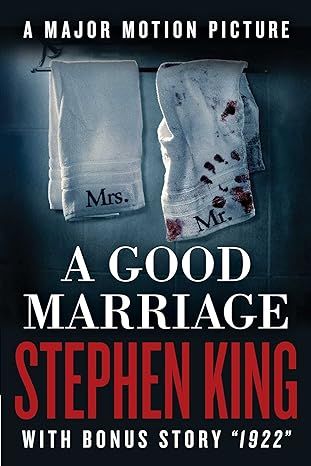
A Good Marriage
4.1
-
5,995
$4.99
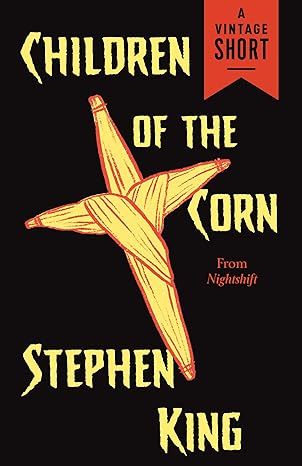
Children of the Corn (Kindle Single) (A Vintage Short)
4.3
-
1,084
$0.99
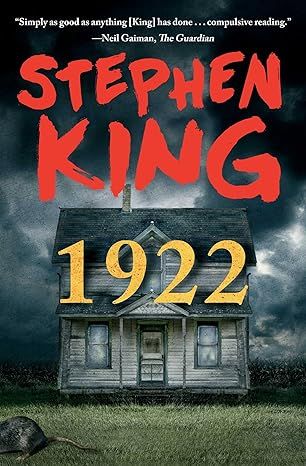
1922
4.6
-
6,082
$7.99
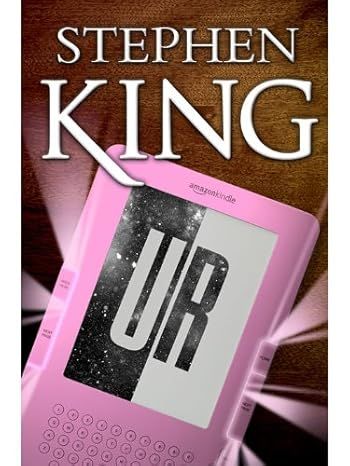
UR
4.3
-
6,140
$3.99
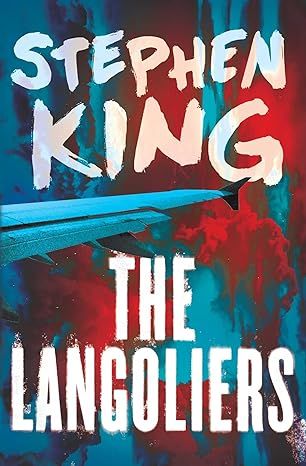
The Langoliers
4.6
-
1,014
$6.49
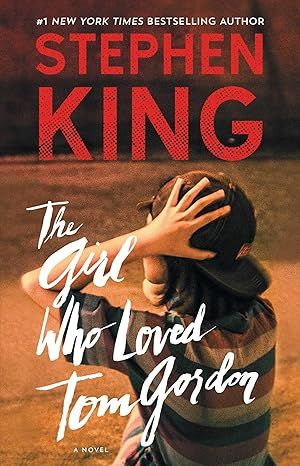
The Girl Who Loved Tom Gordon: A Novel
4.5
-
4,774
$1.17
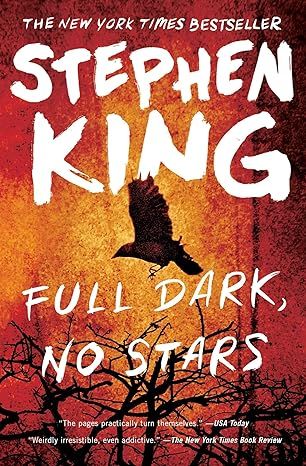
Full Dark, No Stars
4.6
-
6,762
$5.00
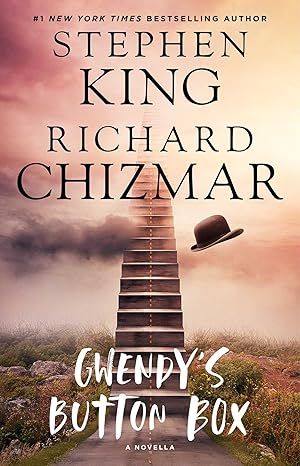
Gwendy's Button Box: A Novella (Gwendy's Button Box Trilogy Book 1)
4.5
-
21,335
$3.88
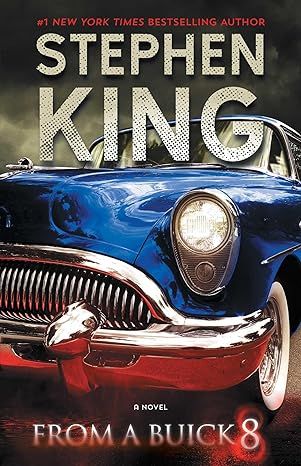
From a Buick 8: A Novel
4.3
-
2,174
$11.99
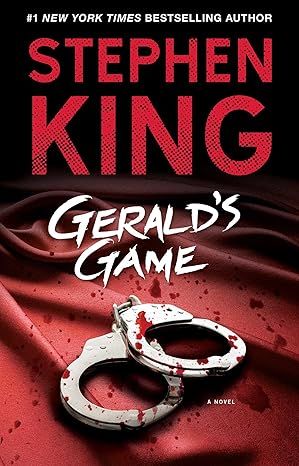
Gerald's Game
4.2
-
3,838
$1.97
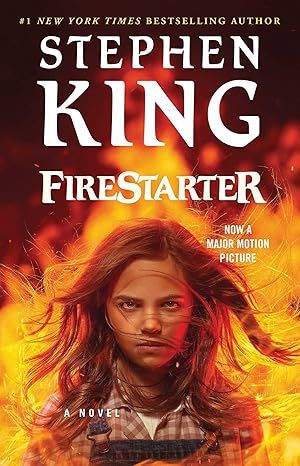
Firestarter
4.6
-
5,489
$9.99
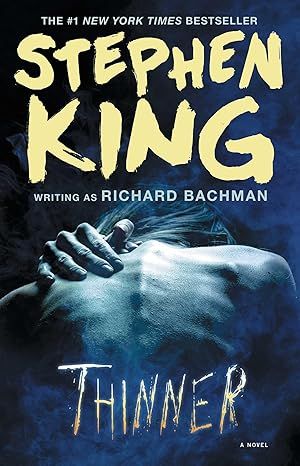
Thinner
4.5
-
3,107
$2.50
Best Sellers
View all
The Tuscan Child
4.2
-
100,022
$8.39

The Thursday Murder Club: A Novel (A Thursday Murder Club Mystery)
4.3
-
155,575
$6.33

Sapiens: A Brief History of Humankind
4.6
-
140,302
$13.49

The Butterfly Garden (The Collector, 1)
4.3
-
88,556
$9.59

Things We Hide from the Light (Knockemout Series, 2)
4.4
-
94,890
$11.66

The Last Thing He Told Me: A Novel
4.3
-
154,085
$2.99

The Perfect Marriage: A Completely Gripping Psychological Suspense
4.3
-
143,196
$9.47

The Coworker
4.1
-
80,003
$13.48

First Lie Wins: A Novel (Random House Large Print)
4.3
-
54,062
$14.99

Mile High (Windy City Series Book 1)
4.4
-
59,745
$16.19

Layla
4.2
-
107,613
$8.99

The Locked Door
4.4
-
94,673
$8.53
